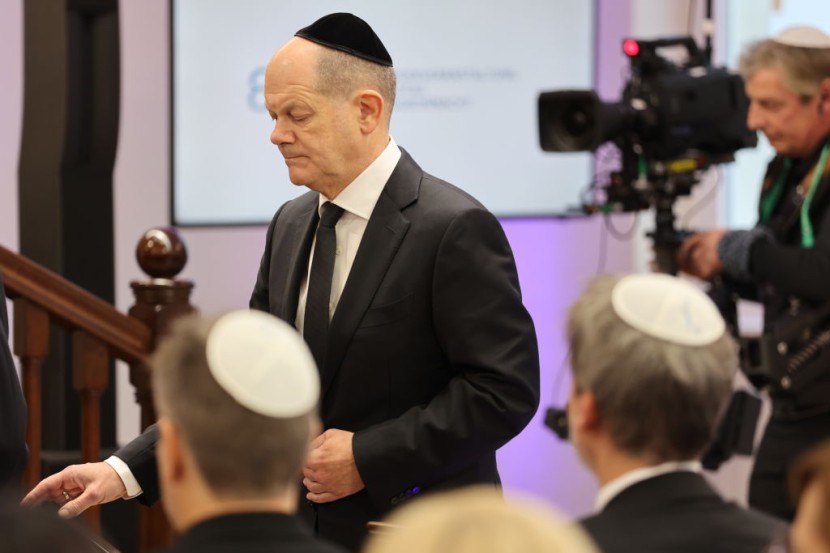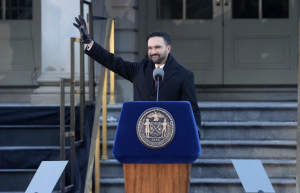Eighty-five years ago today (Thursday, November 9), Germans - instigated by the Nazi Party - executed an overnight pogrom against the Jews of the country. During the pogrom, at least 91 Jews were murdered, about 7,500 Jewish businesses were ransacked, and some 30,000 Jewish men and boys were arrested during the assaults.
The event was eventually known as "Kristallnacht" or "Night of Broken Glass," which many deemed to be the beginning of the Holocaust, which resulted in the death of six million more Jews.
To commemorate one of the darkest days in German history, Chancellor Olaf Scholz attended the commemoration of the pogrom's anniversary at a synagogue in Berlin which was one of among 1,000 that were damaged or destroyed across the country in 1938. He said he was "ashamed and outraged" with the recent string of antisemitic attacks on German Jews, warning the public that the country would not tolerate such anti-Jewish hatred as the war between Israel and Hamas continues.

Scholz: We Will Not Tolerate Antisemitism
According to Reuters, the synagogue Scholz was invited to was the same one that was attacked with a couple of Molotov cocktails a few weeks ago in a firebombing attempt.
In the week following Hamas's attack, antisemitism watchdog RIAS reported 202 antisemitic incidents in Germany related to those attacks, a 240% increase from last year. Police also said mosques were also targeted over the same period, with as many as eight receiving parcels with torn-up Quran fragments mixed with fecal matter.
"Every form of antisemitism poisons our society," Scholz said. "We will not tolerate it."
Outside Germany, cases of antisemitic incidents were also on the rise since the outbreak of the Israel-Hamas War, which caused particular soul-searching in post-World War II Germany, which has since been drawing from its national shame to fight anti-Jewish hate.
Antisemitism as Hindrance to German Citizenship
Meanwhile, German Economy Minister Robert Habeck expressed concern over rising antisemitism in a viral 10-minute video. In it, he warned Germans would have to answer for antisemitism in court, while anyone who was not German risked their residency status.
Scholz verified that new citizenship rules made it clear that anyone who was antisemitic could not receive German citizenship.
Teaching about Germany's dark past and historic responsibility due to the Holocaust was especially important as the generations who experienced it firsthand and shared their story slowly dwindled as they age and die, Scholz added. It was also important for Germany, he further stressed, to continue telling the story of the Holocaust as the country has now become a major destination for immigrants, most of them not knowing the story or have learned about it differently.
"At the same time, we must not be taken in by those who are now seeing an opportunity to deny the place of more than 5 million Muslim citizens in our society," Scholz added.
© 2026 HNGN, All rights reserved. Do not reproduce without permission.








